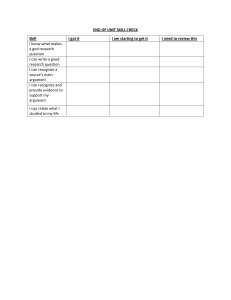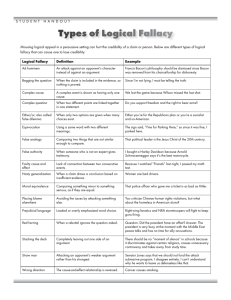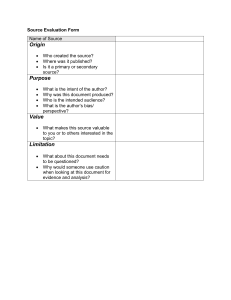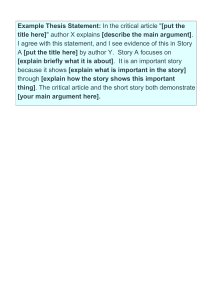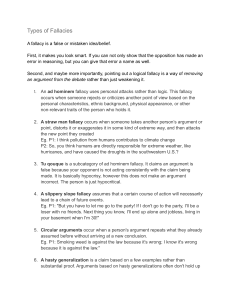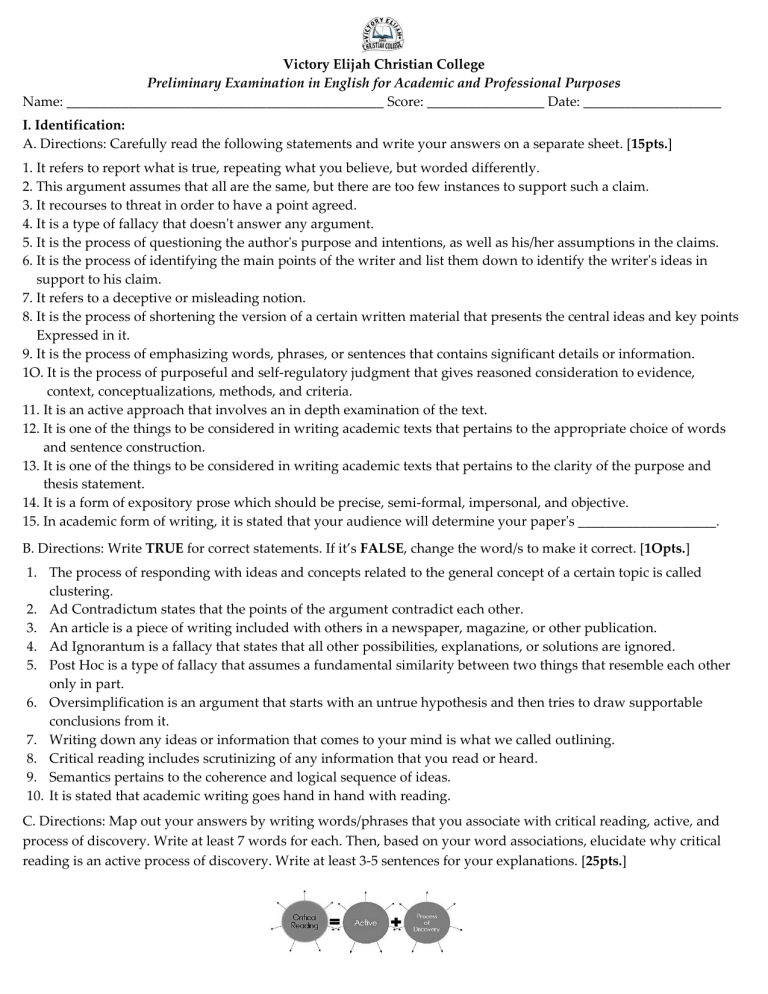
Victory Elijah Christian College Preliminary Examination in English for Academic and Professional Purposes Name: ______________________________________________ Score: _________________ Date: ____________________ I. Identification: A. Directions: Carefully read the following statements and write your answers on a separate sheet. [15pts.] 1. It refers to report what is true, repeating what you believe, but worded differently. 2. This argument assumes that all are the same, but there are too few instances to support such a claim. 3. It recourses to threat in order to have a point agreed. 4. It is a type of fallacy that doesn't answer any argument. 5. It is the process of questioning the author's purpose and intentions, as well as his/her assumptions in the claims. 6. It is the process of identifying the main points of the writer and list them down to identify the writer's ideas in support to his claim. 7. It refers to a deceptive or misleading notion. 8. It is the process of shortening the version of a certain written material that presents the central ideas and key points Expressed in it. 9. It is the process of emphasizing words, phrases, or sentences that contains significant details or information. 1O. It is the process of purposeful and self-regulatory judgment that gives reasoned consideration to evidence, context, conceptualizations, methods, and criteria. 11. It is an active approach that involves an in depth examination of the text. 12. It is one of the things to be considered in writing academic texts that pertains to the appropriate choice of words and sentence construction. 13. It is one of the things to be considered in writing academic texts that pertains to the clarity of the purpose and thesis statement. 14. It is a form of expository prose which should be precise, semi-formal, impersonal, and objective. 15. In academic form of writing, it is stated that your audience will determine your paper's ____________________. B. Directions: Write TRUE for correct statements. If it’s FALSE, change the word/s to make it correct. [1Opts.] 1. The process of responding with ideas and concepts related to the general concept of a certain topic is called clustering. 2. Ad Contradictum states that the points of the argument contradict each other. 3. An article is a piece of writing included with others in a newspaper, magazine, or other publication. 4. Ad Ignorantum is a fallacy that states that all other possibilities, explanations, or solutions are ignored. 5. Post Hoc is a type of fallacy that assumes a fundamental similarity between two things that resemble each other only in part. 6. Oversimplification is an argument that starts with an untrue hypothesis and then tries to draw supportable conclusions from it. 7. Writing down any ideas or information that comes to your mind is what we called outlining. 8. Critical reading includes scrutinizing of any information that you read or heard. 9. Semantics pertains to the coherence and logical sequence of ideas. 10. It is stated that academic writing goes hand in hand with reading. C. Directions: Map out your answers by writing words/phrases that you associate with critical reading, active, and process of discovery. Write at least 7 words for each. Then, based on your word associations, elucidate why critical reading is an active process of discovery. Write at least 3-5 sentences for your explanations. [25pts.]
